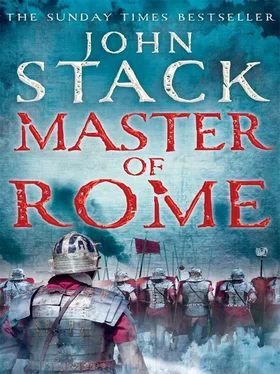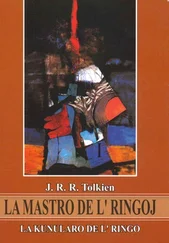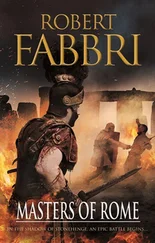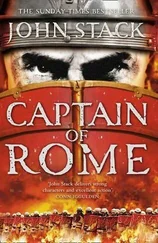John Stack - Master of Rome
Здесь есть возможность читать онлайн «John Stack - Master of Rome» — ознакомительный отрывок электронной книги совершенно бесплатно, а после прочтения отрывка купить полную версию. В некоторых случаях можно слушать аудио, скачать через торрент в формате fb2 и присутствует краткое содержание. Жанр: Исторические приключения, на английском языке. Описание произведения, (предисловие) а так же отзывы посетителей доступны на портале библиотеки ЛибКат.
- Название:Master of Rome
- Автор:
- Жанр:
- Год:неизвестен
- ISBN:нет данных
- Рейтинг книги:4 / 5. Голосов: 1
-
Избранное:Добавить в избранное
- Отзывы:
-
Ваша оценка:
- 80
- 1
- 2
- 3
- 4
- 5
Master of Rome: краткое содержание, описание и аннотация
Предлагаем к чтению аннотацию, описание, краткое содержание или предисловие (зависит от того, что написал сам автор книги «Master of Rome»). Если вы не нашли необходимую информацию о книге — напишите в комментариях, мы постараемся отыскать её.
Master of Rome — читать онлайн ознакомительный отрывок
Ниже представлен текст книги, разбитый по страницам. Система сохранения места последней прочитанной страницы, позволяет с удобством читать онлайн бесплатно книгу «Master of Rome», без необходимости каждый раз заново искать на чём Вы остановились. Поставьте закладку, и сможете в любой момент перейти на страницу, на которой закончили чтение.
Интервал:
Закладка:
John Stack
Master of Rome
TUNIS, NORTH AFRICA. 255 BC
The colossal animal surged forward against the crack of the bullwhip, its momentum increasing into an unstoppable charge as it bellowed in anger and terror, the scent of men fuelling its rage. It lifted its head and gazed ahead through hooded yellow eyes. The scene before it was a blur of movement, a dark horde that threw up a terrifying wall of sound; the hammering of ten thousand shields, the war cries of a multitude. The elephant bellowed once more, sweeping its scimitar-shaped tusks high into the air as the whip cracked against its hide.
The ground beneath the beast trembled and shook. Dust smothered its throat, the thirst maddening, while slowly the host before the creature drifted into focus, the mass into individual men. A sharp pain shot through the elephant’s flank and it immediately turned its head to the site of injury, the blood stark against the grey hide. Every instinct called for flight, but years of brutal training demanded obedience and the bullwhip drove the creature on.
The elephant crashed headlong into a wall of shields and the war cries of men changed to screams of pain, the momentum of the creature’s charge driving it deep into the Roman maniples. The legionaries struck out with shield and sword while overhead volleys of spears rained down to strike deep into exposed flesh, the unceasing pain driving the elephant into frenzied terror. The creature swept its tusks before it, scything through the massed ranks, cutting through flesh and armour. It raised its trunk, a spray of pink blood gushing forth from the fluid filling its punctured lungs, while its feet crashed down on the fallen, crushing bone and cartilage as the death cries of man and beast filled the air.
The Roman line buckled and caved before the momentum of the elephant charge was absorbed and then slowly repelled, the strength of twelve thousand legionaries pitted against the might of a hundred elephants. The front ranks shattered but fought on, the inescapable fight driving them to mindless courage, with men standing their ground against creatures that killed and maimed relentlessly until the burden of countless wounds drove them to their knees. Those who remained advanced against the Carthaginian phalanx that shadowed the elephant attack, but again the Romans were checked as cries of alarm swept across their lines.
The Carthaginian horse, four thousand strong, raced across the open ground, the routed Roman cavalry in their wake, the light-horsemen loosing spears at full gallop into the exposed Roman right flank. The maniples turned to engage. The centre became a confusion of commands and alarm as the enemy cavalry swept around the rear of the Roman formation. The legions ceased to advance, the fight on all sides. The order to ‘steady the line’ was given, a desperate command to stand fast, to take strength and fight against all odds.
The Carthaginians pressed inward, the cavalry driving their mounts ever on against upturned shields, the riders striking down with spear and sword. The maniples stepped back, the fallen trampled under hoof as legionaries struggled to wield their swords in the crush, the men to their rear unable to assist as the battle descended into butchery. In the centre, desperate commanders roared hopeless orders, the ever-tightening vice robbing them of the chance to break out while the battle line closed in from all sides, the Carthaginians advancing relentlessly, giving no quarter, their hatred for the Roman invader feeding their strength and determination as warriors pushed forward to fight in the front line, eager to bloody their swords, the pressure on the Roman lines never abating until the last man fell under Phoenician steel.
CHAPTER ONE
The searing wind swept through the streets of Aspis and beyond to the harbour, the parched air whipping the wave crests of the gentle swell into a fine spray, as if greedily clawing at the water after its five-hundred-mile trek across the arid Sahara. Atticus stepped out from the lee of a building into the flow of air and turned his face into the wind, breathing in deeply, sensing the enormity of the mysterious land in darkness before him, the hostile territory of the Carthaginians that pressed against the boundaries of the Roman-held port. He spotted the man he had searched for at the end of the street, and approached, the centurion turning to acknowledge him.
‘Cursed wind,’ he said.
Atticus nodded. ‘The Sirocco,’ he replied, remembering his grandfather’s teaching, and how that same wind shrouded his home city of Locri on the south coast of Italy with oppressive humidity every spring. ‘Any sign?’ he asked.
‘None,’ Septimus replied, and the two men lapsed once more into silence as the predawn light began to illuminate the landscape before them.
The land along the coast was green and fertile, stretching east a thousand leagues to Egyptus and west to the Pillars of Hercules. For forty generations it had been home to the Carthaginians, protected along its length by a mighty fleet that controlled the trading routes of the southern Mediterranean; until a year before, when the Romans humbled the Carthaginian navy at Cape Ecnomus, and thereafter invaded the once inviolate shores of North Africa. Now, not fifty miles to the west, the Roman army, fifteen thousand strong, were engaged with the Carthaginians near Tunis while the men at Aspis, Atticus and Septimus amongst them, waited impatiently for news.
Atticus looked to the eastern sky, watching slowly as the crimson skyline dissolved at the approach of the sun, the orb finally cresting the horizon with a spear of white light that flashed across the blue-grey sky. He looked over his shoulder and turned to walk back down the deserted street to the harbour. He paused at the water’s edge, his gaze ranging over the forty galleys tugging gently on their anchor lines near the shore. As a praefectus classis, a prefect of the fleet, these ships were under his command, and his own galley, the quinquereme Orcus, was moored in the centre of the formation. Atticus studied the fleet with a practised eye, watching as men moved slowly on the decks without command, the routine of naval life dictating their actions, the only sound the howling wind that masked all others.
Atticus had come ashore an hour before, succumbing to a sudden compulsion to escape the confines of the Orcus, anxious to learn if any messenger had arrived during the night. It was an escape he had never sought from his previous ship, the Aquila, and he wondered if there would ever come a time when he would consider the Orcus as anything more than just another ship of the Classis Romanus, the fleet of Rome.
He turned once more to the figure standing at the end of the street, the centurion’s tall stature imposing even from fifty yards. Septimus was motionless, standing resolutely in the face of the wind, his attention still fully drawn to the far southern horizon. Atticus began to walk back towards him. He glanced left and right down the narrow laneways as he walked, briefly spying individual or small groups of legionaries, the men emerging slowly from the homes that had been commandeered to house them, just ahead of the clarion call of the vigilae, the night guardsmen ending their watch by rousing the camp. He looked once more to Septimus and immediately noticed the tension in the centurion’s shoulders, his body leaning forward at the waist. Atticus quickened his pace but, before he could cover the distance, Septimus swept his sword from his scabbard, the metallic sound caught and whipped away by the wind. The centurion turned, his eyes seeing beyond Atticus to the street behind.
‘To arms!’ he shouted. ‘Sound the alarm!’
‘What is it?’ Atticus asked, and Septimus indicated over his shoulder to the horizon beyond.
Читать дальшеИнтервал:
Закладка:
Похожие книги на «Master of Rome»
Представляем Вашему вниманию похожие книги на «Master of Rome» списком для выбора. Мы отобрали схожую по названию и смыслу литературу в надежде предоставить читателям больше вариантов отыскать новые, интересные, ещё непрочитанные произведения.
Обсуждение, отзывы о книге «Master of Rome» и просто собственные мнения читателей. Оставьте ваши комментарии, напишите, что Вы думаете о произведении, его смысле или главных героях. Укажите что конкретно понравилось, а что нет, и почему Вы так считаете.










